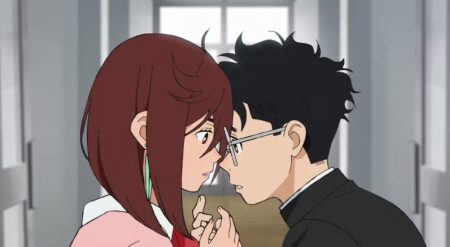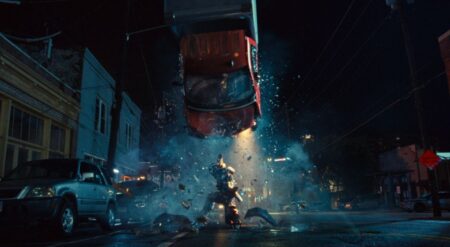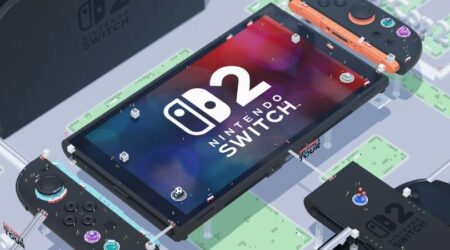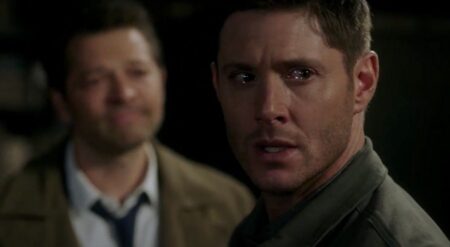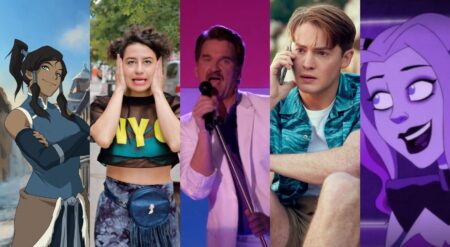
As a massive fan of the Rocky films, I walked out of Creed III ecstatic to have another solid installment in this franchise. The choices Jordan makes in his debut without a doubt capture that same magic of your favorite anime duo with plenty of nods and homages to the Mt. Rushmore of shonen rivalries. Creed III separates itself from Creed I and II by adding these elements to elevate the story of Adonis Creed. However, taking a look back at where this franchise began all the way back in 1976, Rocky has always been about the shonen rivalry.
As fans flock to theaters to see Michael B. Jordan’s directorial debut in Creed III, many walk away with the same feelings they have after watching their favorite shonen rivalry unfold. During an interview with Polygon, Jordan was very upfront that this was always the intention. As an anime fan himself, he drew inspiration from powerhouse anime like Naruto, Full Metal Alchemist, Dragon Ball Z, and My Hero Academia to capture the shonen rivalry between Adonis Creed (Michael B. Jordan) and Damian Anderson (Jonathan Majors).
Where Creed III draws clear connections between more modern shonen anime like Naruto, Rocky I – IV draws clear parallels with Dragon Ball Z. Before Naruto and Sasuke, there was Goku and Vegeta. Before Goku and Vegeta, there was Rocky Balboa and Apollo Creed. Fitting considering Creed passed the torch to Michael B. Jordan to lead this new era, much in the way Dragon Ball Z, the grandfather of shonen anime, passed the torch to Naruto.
As a fan of the franchise, I have always felt Rocky is misunderstood, often lumped into a macho action franchise with not much else to offer. But there is so much more to the franchise than just boxing and a feel-good underdog story. For the uninitiated, I have always described the films as romance movies with a bit of boxing thrown in as Rocky’s and Adrian’s relationship is one of the most underrated love stories out there. Now though I may describe it as shonen anime the rivalry between Rocky and Apollo Creed remains the heart of the best-rated installments.
Looking at how the relationship between Goku and Vegeta throughout Dragon Ball Z is one that every anime fan likely knows. First enemies and then later friends if you ask Goku and rivals if you ask Vegeta. Nevertheless, even today in Dragon Ball Super, they both push each other in equal measure to go beyond their limits and help each other achieve greatness. Rocky and Apollo followed a similar journey with other members of the cast fitting neatly into other characters in the Dragon Ball franchise.
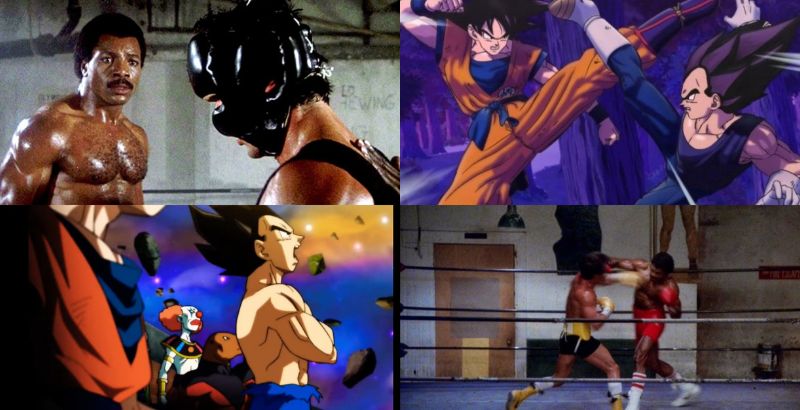
While not essential, rivalries are a hallmark of the shonen genre. Through the protagonist, viewers see that achieving your goals takes a tremendous amount of hard work. Seeing growth through their labors and determination, the protagonist gives a lens through which to look at our own motivations to take our lives to the next level. Sometimes that motivation comes from unexpected sources. For many shonen heroes, the catalyst is the connection to their rival. The person who understands the hero’s struggles and looks to match them stride for stride until they both reach new heights. Regardless of how they meet, the end result presents a bond that transcends the fighting, humor and other elements that make shonen so great. The Rocky franchise provides this in the same way that the Dragon Ball franchise does.
In the first Rocky film, Rocky is a relative nobody in the boxing world but has a heart that no one else can match. Similar to Goku being a weakling as a child as far as Saiyan standards are concerned. After running through his challengers, Apollo Creed gives Rocky a shot at the heavyweight title. As a showman and the pinnacle of confidence, he was happy to give the opportunity to someone who thought beneath his station. Similar to Vegeta, Apollo was proud of his titles and his place as “The Master of Disaster”, ‘The King of Sting”, “The Dancing Destroyer”, “The Prince of Punch”, and “The Count of Monte Fisto”: both driven by legacy and proving that they are the best. All the while, Rocky is looking for an opportunity to challenge himself and change his and Adrian’s life.
When Apollo narrowly wins the fight by decision in Rocky, he is the first to ask for a rematch while battered and bruised in Rocky II. Apollo won the fight but many walked away thinking of Rocky as the victor. Later he goes as far as to say, “I won, but I didn’t beat him.” If that isn’t the most Vegeta line ever, I am not sure what is. It is certainly something I can see Vegeta saying after having to resort to his Great Ape form to defeat Goku the first time.
Following Goku’s first defeat of Frieza after achieving Super Sayian, a feat in which Vegeta had failed, Vegeta goes back to train harder than ever to surpass the lesser Sayian. This draws clear similarities in which Apollo drops the showman persona and goes to train like he did when he was a hungry up-and-comer. Like Vegeta, it would take Apollo time to close the gap as he defeated at the end Rocky II.
In Rocky III, fans are introduced to Clubber Lang. An unstoppable force that seemingly out of nowhere began destroying the competition. Rocky in his new stardom is largely unaware of this new threat on the horizon. It is only after he makes his appearance known at the ribbon cutting for the famed Rocky statue does Rocky take on the new challenger. Mickey, a Master Roshi type, does not think Rocky can win and is ultimately proved right when Clubber defeats him handily. Here, the parallels to the Andriod Saga make themselves known. In Rocky III, however, instead of Vegeta being the one who is beaten badly by Andriod 18, we have Rocky losing to Clubber Lane. This prompts Apollo to do away with the isolationist training seen in Rocky II and to train with Rocky to defeat this new threat.
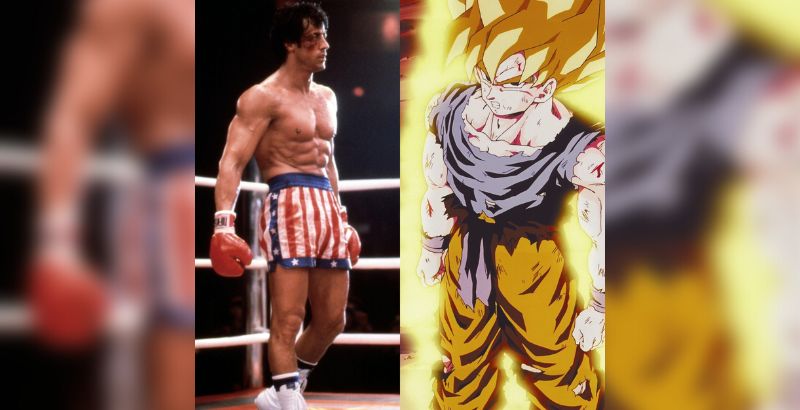
Following training with Apollo, Rocky becomes a different fighter. Almost a Super Saiyan in his own right. With added motivation of losing Mickey (what gives anime characters more of a power boost than death?), he is able to defeat Clubber Lane and ride off into retirement. Post Cell Saga in Dragon Ball Z, we have a similar time of retirement with Goku with King Kai and Vegeta settling down with his new family. Apollo’s growth and acceptance of Rocky as an equal is something that takes Vegeta some time to the same as with Goku. While both retired, Apollo never loses that passion to be known as one of the best to ever do it. So much so that the duo has a secret third match behind closed doors. But even that isn’t enough. Enter Rocky IV.
In a reversal of roles, it is now time for Rocky to train Apollo as he takes on Ivan Drago, a boxer from Russia who is a specimen of nature. Drago’s story and dominance are akin to what we see with the original version of Broly; a Sayian who is more of a tool than a person in the eyes of his father Paragus. While Rocky is hesitant for Apollo to take this fight given Drago’s immense physical ability, Apollo is adamant that he is more than capable of defeating this new challenger. During the fight with Drago, Apollo is killed while Rocky is helpless to stop him. Feeling responsible for the death of his friend and rival, Rocky challenges Drago to a fight.
Rocky himself goes into a hyperbolic time chamber by training in Russia without any of his normal techniques. The fight versus Dragon is purely personal as there is no money on the line. Sayian pride at its finest. While Goku was never able to defeat Broly 1v1, Rocky was able to climb the mountain and defeat Drago in one of the best matches in the franchise. Even after all of the hostility that Rocky received during his bout in Russia, he was still able to be accepting and understanding of the situation in which he placed himself. His ability to see the good in any situation even after a brutal fight, would make Goku proud.
The similarities to Dragon Ball Z don’t stop there. Mickey, the aforementioned trainer for Rocky, without a doubt, evokes notes of Master Roshi in Dragon Ball. Adrian grows as a character who often attempts to keep Rocky in check and grounded. Her strength by Rocky III makes her more than a match for Rocky’s energy as a fighter and one who isn’t afraid to let her voice be known. She draws striking similarities with Chi Chi and Bulma. Rocky has a son, Robert (Rocky Jr.) who he consistently leaves alone to train for these fights. Further, he hopes that he will take up fighting but ultimately focuses on his studies akin to Gohan. Even Tommy Gunn in Rocky V can be seen as a carbon copy of Rocky Balboa that Rocky has to deal with. Much of Cell’s immense power comes from having DNA from Goku.
While Rocky and Apollo’s shonen rivalry ends in Rocky IV, the spirit of shonen elements remains throughout the rest of the franchise. Creed I and II see Rocky taking Apollo Creed’s son Adonis Creed under his wing. Throughout the events of the Creed films, Adnonis must battle with much of his father’s legacy which is really all we see Future Trunks do in Dragon Ball Z.
If you pitched me a Dragon Ball spin-off where Goku mentors Future Trunks, I would be all in. Where an older Goku must pass on all he knows to his rival’s son. Where he feels deeply responsible for Future Trunks being without a father. Where Goku looks to right the mistakes he made with his own son Gohan, who no longer speaks to him given his obsession with boxing early on in Gohan’s life. Where we see Future Trunks break the shackles of expectation that loom over him because of his father’s greatness. Because this is what we see in the Creed franchise, and it is all set up by the groundwork in the Rocky films.

